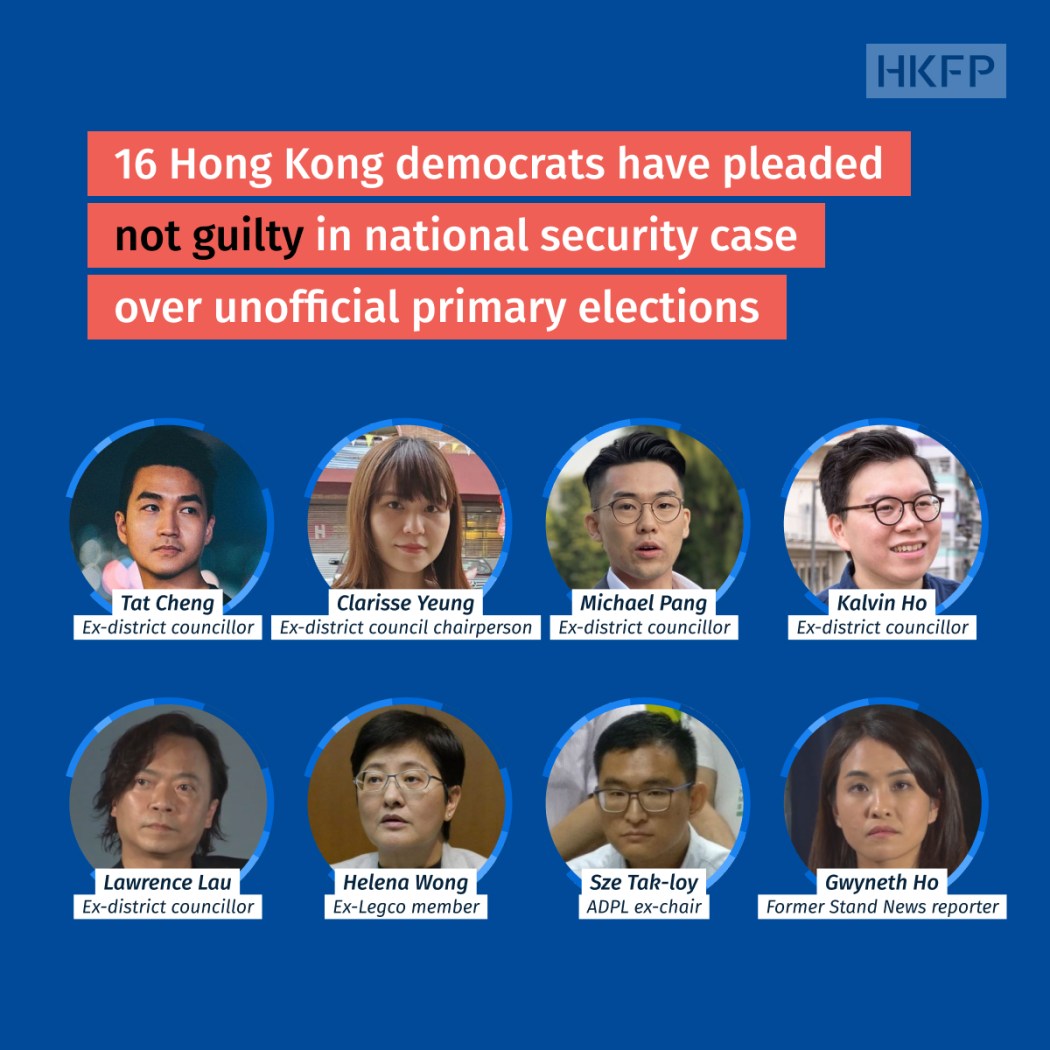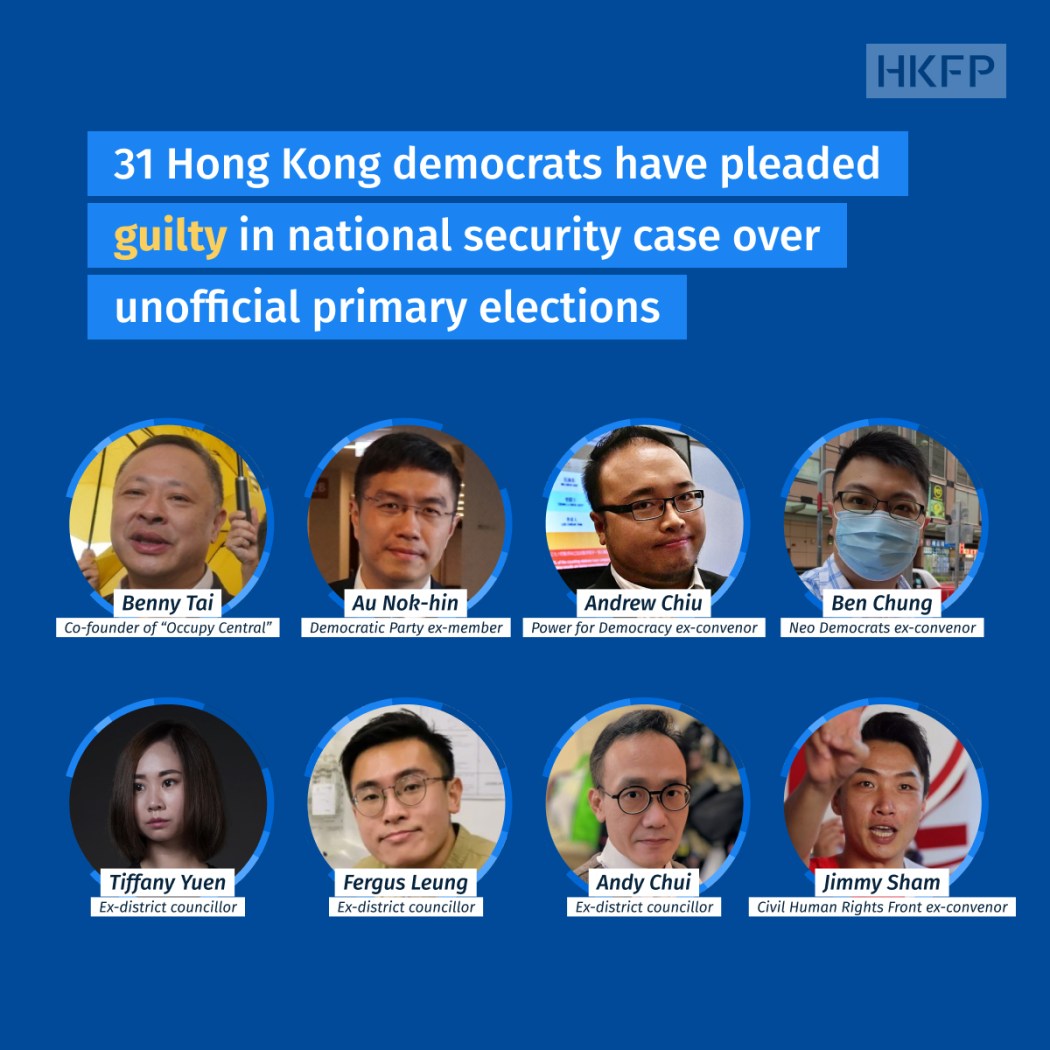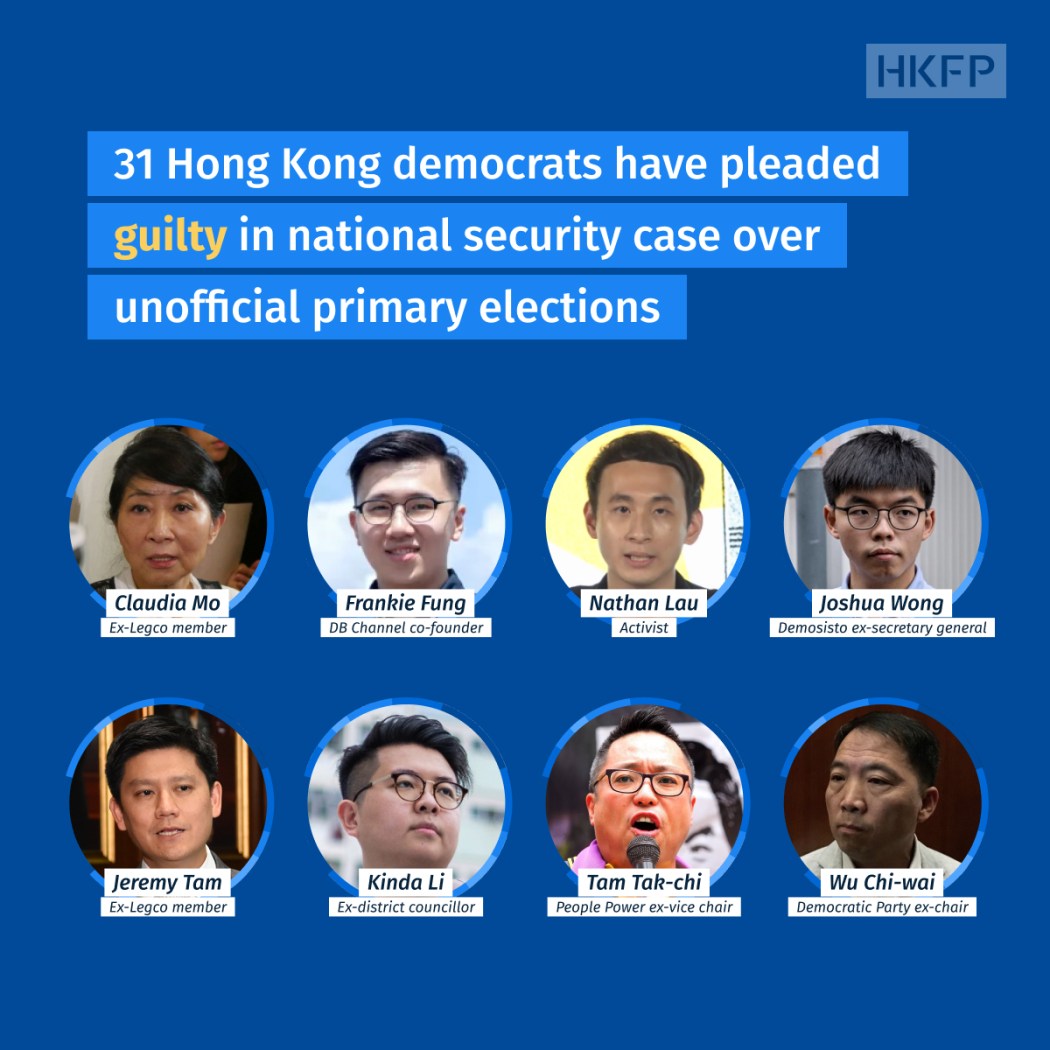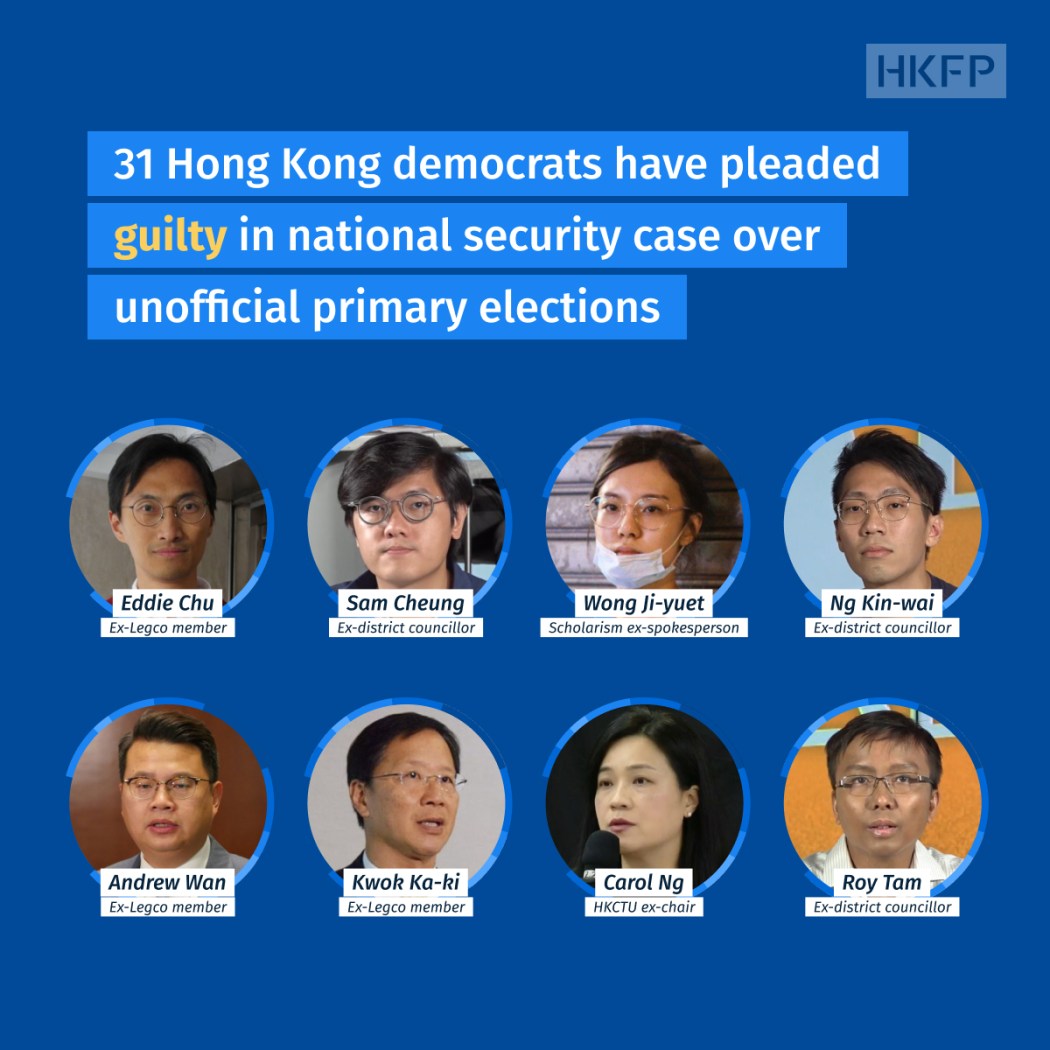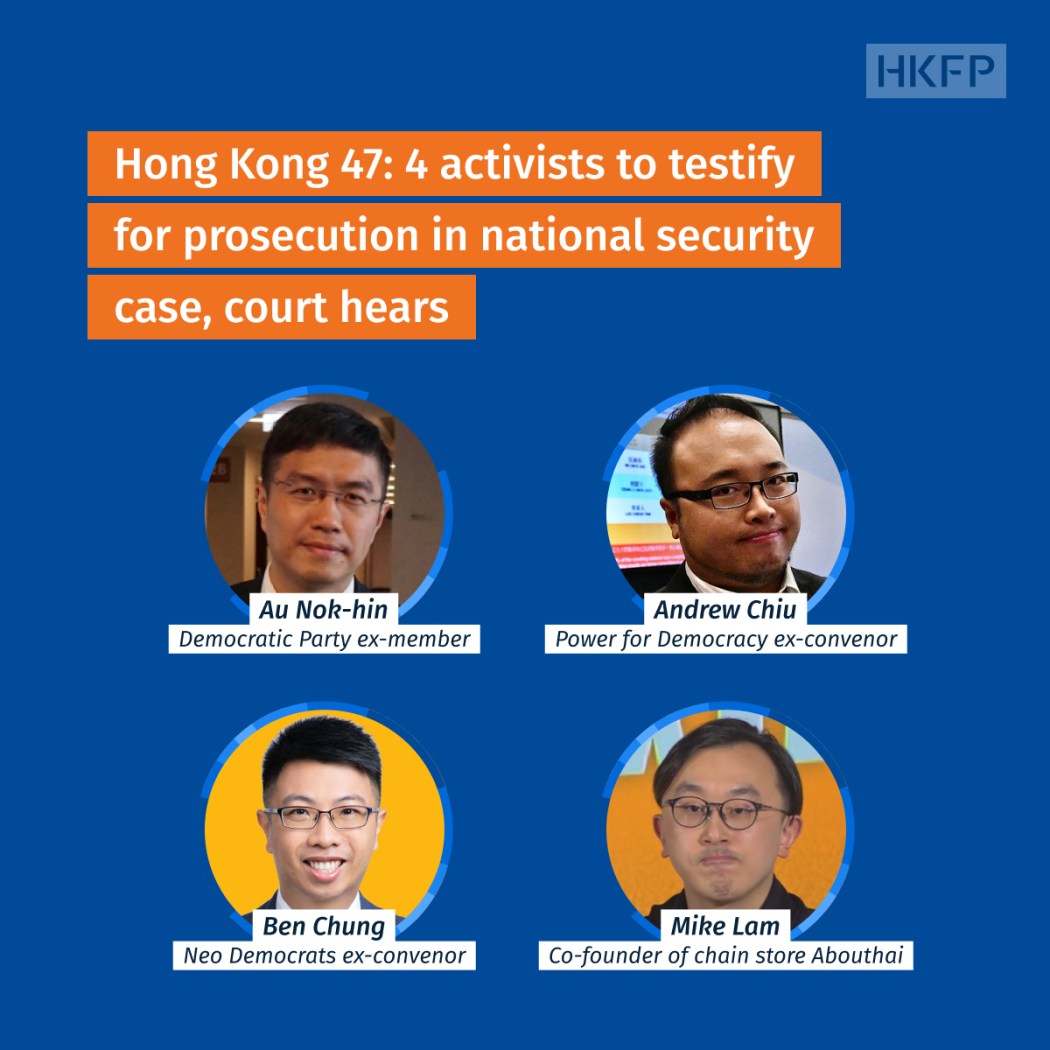A Hong Kong court has granted anonymity to a witness who will testify for the prosecution in a landmark trial relating to 47 pro-democracy figures under the Beijing-enacted national security law.

A panel of three designated judges on Monday approved a request for anonymity from local prosecutors for one of its witnesses in a case surrounding an alleged conspiracy to commit subversion, in connection with an unofficial legislative primary election held in July 2020.
Summarising the application, High Court judge Andrew Chan said some defendants believed there was no need to keep the witness unnamed, as the name had been made public before. But prosecutors wanted to protect the witness from “further harm,” he said.
There was a need to prevent the witness from being harassed by someone with an “ulterior motive,” Chan said, while another judge Alex Lee said the court had to strike a balance between a fair trial and witness protection.
Representing ex-district councillor Lee Yue-shun, barrister Steven Kwan proposed amending the scope of the gag order. The court should not restrict the dissemination of information that was already in the public domain, the lawyer said.
The judges rejected Kwan’s suggestion, saying it would “render the gag order ineffective.” Anonymity was eventually granted to the prosecution witness, who may only be referred to as “X.”
The media and legal representatives are barred from disclosing any information which may lead members of the public to identify the witness. The witness would also give evidence behind a screen and use a special passageway to enter and exit the court.
Anyone who disobeyed the order may be held liable for contempt of court, Chan warned.
Monday marked day 54 of a 90-day trial of 16 prominent politicians and activists who denied the charge which carries a maximum penalty of life imprisonment. Together with 31 defendants who pleaded guilty, the group stands accused of intending to use their powers as lawmakers, if elected, to indiscriminately veto government bills, drive the government to a standstill and ultimately force the city’s leader to resign.
Had the Legislative Council election not been postponed for more than a year due to Covid-19, the alleged conspiracy would be “carried out to fruition,” prosecutors alleged when the closely-watched trial began in February.
X would be the fourth witness called to the stand by the prosecution, Deputy Director of Public Prosecutions Jonathan Man told the court on Monday. So far, three defendants have testified against their fellow democrats, including former lawmaker Au Nok-hin and ex-district councillors Andrew Chiu and Ben Chung.

Chung, who formerly chaired the Sai Kung District Council, completed his testimony on Monday morning. During his cross-examination by the defence, the 34-year-old said that there had not been any official condemnation of a lawmaker who vetoed approval of the budget.
There were no ramifications stemming from the voting itself, the former politician said when answering questions from barrister Trevor Beel, representative of journalist-turned-activist Gwyneth Ho.
Chung agreed with Beel that the plan of winning more than half of the legislative seats was a vision of Benny Tai, who was an associate law professor at the University of Hong Kong. A legislative majority would have allowed the democrats to be in a position to ask the government to respond to the five demands raised by protesters in 2019, or they could vote against the bills tabled by the government, the lawyer said.
Beel went on to ask if such vision meant there was not a blanket plan to indiscriminately veto the budget, and the elected democrats would only consider using their constitutional power to vote against the budget’s appropriation bill if the government failed to respond to the demands.
Chung replied by saying that he could not say how the elected democrats may have reacted based on the response of the government to the five demands.

The barrister also asked Chung whether he agreed that comments related to Hong Kong independence would be “something that stuck in your mind” if they were raised at a coordination meeting.
The ex-district council chief said he agreed.
The trial hearing was adjourned after the prosecution read out two sets of amended admitted facts concerning former Stand News journalist Ho and ex-lawmakers Lam Cheuk-ting and Helena Wong.
The trial will resume on Tuesday morning.
In June 2020, Beijing inserted national security legislation directly into Hong Kong’s mini-constitution – bypassing the local legislature – following a year of pro-democracy protests and unrest. It criminalised subversion, secession, collusion with foreign forces and terrorist acts, which were broadly defined to include disruption to transport and other infrastructure. The move gave police sweeping new powers, alarming democrats, civil society groups and trade partners, as such laws have been used broadly to silence and punish dissidents in China. However, the authorities say it has restored stability and peace to the city.
Support HKFP | Policies & Ethics | Error/typo? | Contact Us | Newsletter | Transparency & Annual Report | Apps
Help safeguard press freedom & keep HKFP free for all readers by supporting our team


